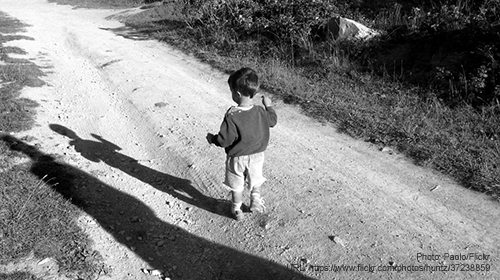
Imagine a child alone in immigration court โ defenseless โ representing herself against a government prosecutor, standing before an immigration judge, and trying, in a language she does not speak, to make a case for her life. Unfortunately, this horrifying scene takes place across the country and Congress is currently debating legislation that could make an unhappy ending to this scene even more likely.
As children continue to enter immigration courts alone, this month, the House Judiciary Committee debated two immigration bills that aim to gut the due process rights of traumatized children, many of whom have fled violence and sexual abuse and who face potential lethal harm if deported to Central America. Both bills were and their next stop could be the House floor.
The Asylum Reform and Border Protection Act (H.R. 1153) and the Protection of Children Act (H.R. 1149) seek to extinguish the government's existing authority to pay for legal representation for individuals in deportation proceedings. H.R. 1153 seeks to bar the government from paying for immigration counsel for anyone in removal or appeal proceedings, including children, adults with mental disabilities and other vulnerable persons. Currently, only in deportation proceedings are represented by an attorney. H.R. 1153 also appropriates funds to hire 60 more government trial attorneys. H.R. 1149 takes aim at unaccompanied children by weakening their right to counsel, and states that "access to counsel" suffices. It doesn't matter if they don't speak English, don't know what they need to prove up, and don't understand what's at stake if they lose. They're on their own. Worse, given the 2014 influx of Central American children to our border, refugee protection and human rights experts reported that large numbers of children fled brutal sexual and gang-related violence.
Government-paid counsel is an indispensable component to a fair and efficient immigration court system. The presence of immigration counsel children's chances of winning their immigration case. Using a decade's worth of immigration court records, the at Syracuse University found that whether an unaccompanied child had an immigration attorney was the single most important factor influencing the case's outcome. In nearly in which a child was represented, the immigration court allowed the child to remain in the U.S. In the cases where the child had no immigration counsel, only 15 percent of the children were allowed to remain in the U.S. The remaining 85 percent were ordered to be deported.
While Congress continues to fight over immigration, all lawmakers should agree on two basic principles: children cannot represent themselves in high-stakes deportation proceedings. And our Constitution and our conscience cannot tolerate a court system that pits powerful government prosecutors against defenseless traumatized children, who, upon deportation, could be harmed, and even killed.
Learn more about due process and other civil liberties issues: Sign up for breaking news alerts, , and .

